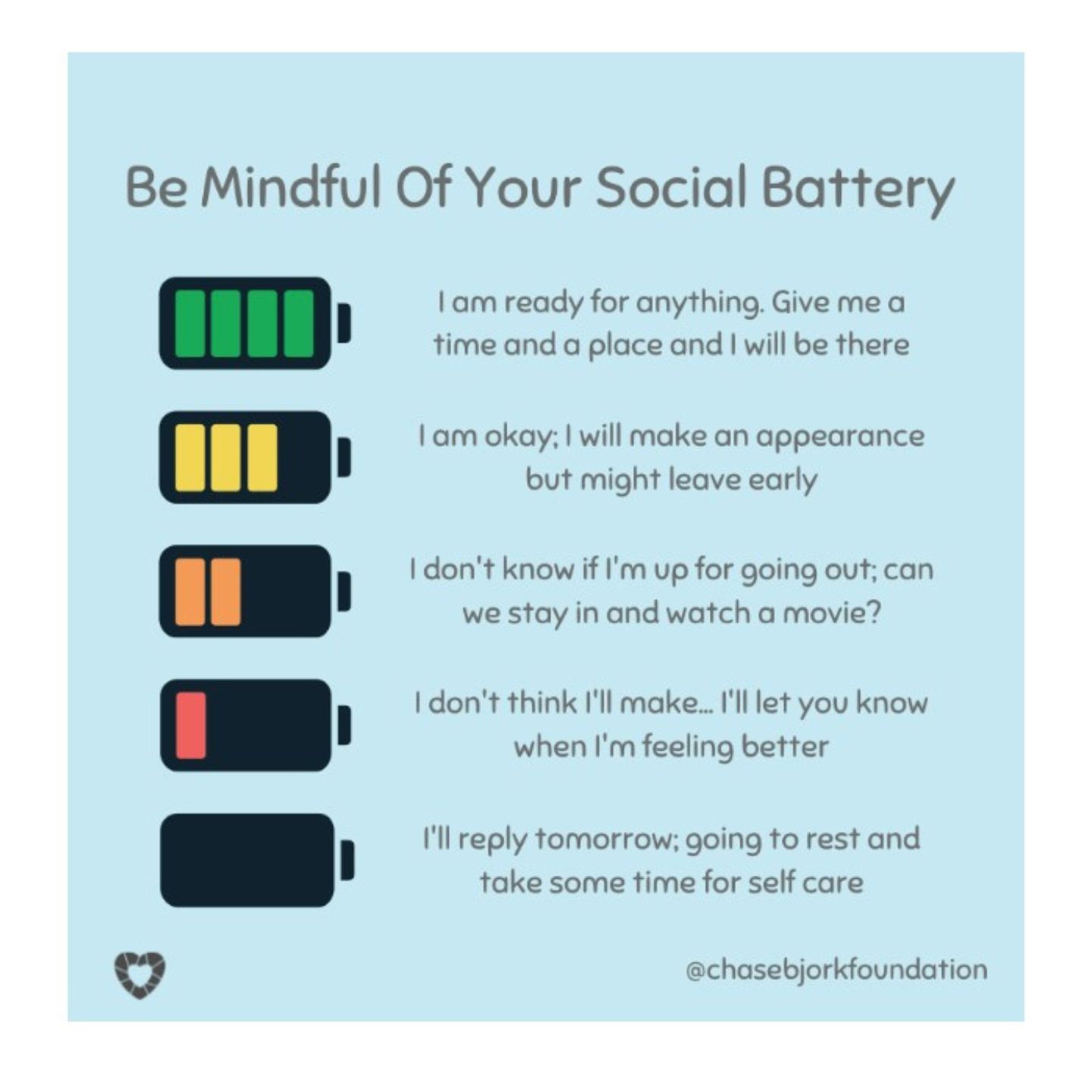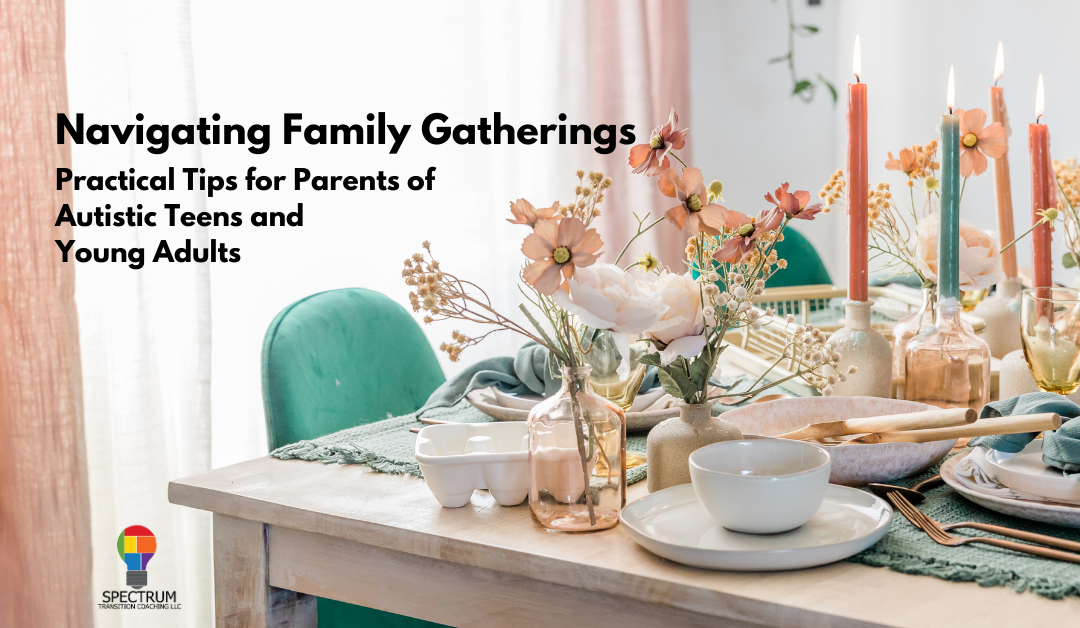With Passover and Easter just around the corner, the spring can be full of family gatherings. These are special times to celebrate and share family traditions. But they can also be overwhelming for autistic teenagers and young adults.
From noisy environments to crowded spaces to unfamiliar friends, these events can be incredibly draining. But as a parent, you want your child to know their relatives and build these relationships through in-person interactions.
So how do you balance both? The social battery concept can be a useful tool for both you and your teen.
This is one of the many tools we introduce in our College 101 course for parents of autistic high school students. If you’re focused on building your teen’s confidence and resilience to get ready for college, check it out (there’s a free preview too!)
What is Social Battery?
Social Battery is a concept to describe your energy level around interacting with other people. It is less of a medical concept and more of a conversation tool to align on how much energy an individual has in a particular situation.
This image from the Chase Bjork Foundation gives great language from full battery to low battery and needing to recharge.
At full battery, you are excited to socialize with friends and meet new people.
As you battery drains, you find your self feeling more tired, disengaged and even irritable.
If you let youry batter go to zero, you are completely exhausted and need intense recovery time.


Practical Strategies to Support Your Autistic Teen
Before the Event
- Make time for a conversation with your autistic teen about the upcoming event – date, time, location, who will be there and the general plan for the event. Get their feedback on the schedule for the day and genuinely try to incorporate their ideas.
- Look at the plan from a sensory perspective:
- It is possible to move part of it to an outdoor setting? Outdoor settings can be more calming and allow for the noise to dissipate.
- Can you assign seats for a meal? This will give your autistic young adult the change to pre-select who they would like to sit by instead of getting stuck next to a relative they don’t get along with well.
- Can you add in buffer time? Instead of making a jam-packed day of activities, can you build in down time to rest and recharge?
- Remind your teenager about the importance of flexibility. Things don’t always go according to plan. People arrive late, the food order gets mixed up or the weather doesn’t cooperate. Talk through these scenarios ahead of time so you are both better prepared to handle these changes as they come.
During the Event
- Give your teen permission to take breaks. Let them know that it’s ok if they’d like to find a quiet place to recharge for a few minutes. Ask them to set a timer to return to the gathering so they don’t stay stuck in their room.
- Remind your teen of any items that help them feel settled – calming strips on the back of their phone, fidget toys, etc.
- Create a key word to signal that your autistic teen is feeling drained and needs a break. Let them know that if they say this word to you, you’ll know they need some space and help them to get it.
- Remember these helpful phrases:
- “Do you need a break?”
- “Battery check – how are you feeling?”
- “Would you like to take a short walk? With me or would you prefer to go alone?”
- “Let’s revisit the plan. Would you like to make any changes now that we are here?”
After the Event
- Plan intentional down time to recover after a large gathering.
- Let them take some time to recover rather than peppering them with questions about how it went and who they talked to.

Practical Strategies to Advocate for your own Social Battery Needs
Before the Event
- Practice your short-term stress reduction techniques so you can enter the room feeling balanced and calm. These are some of our favorite ideas that you can do anywhere.
- If you have finals or papers due shortly after the event, think about what coursework you need to complete before you travel home so you can be present during your stay.
- Pack the necessary reading or school notes to stay on track with your academic goals.
- Ask the host for event details that can help you prepare – timing, meals, fellow guests. They may not have all of the answers but you may get some more context to help you prepare.
- Create 3 ways for you to recharge your social battery no matter where you are. These could be:
- Going for a phone-free walk outside.
- Doing 3 minutes of deep breathing.
- Bringing a journal for a few minutes of writing or sketching.
During the Event
- Be mindful of your social battery. When you feel it draining, remember your recharge strategies that you created before the event.
- Expand your comfort zone slightly. If you always talk to one particular cousin, challenge yourself to speak to two other family members.
- Practice your self-advocacy skills. If you need something, practice finding a respectful way to get it.
After the Event
- Set time for relaxation and recharge in a way that feels restorative to you.
- Think through what went well and what could have gone better. Speak to a parents about your ideas to make the next event more enjoyable for you.

